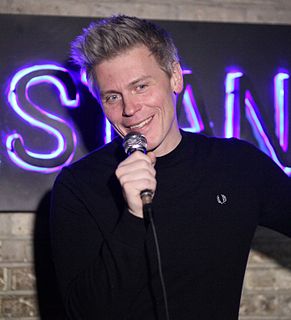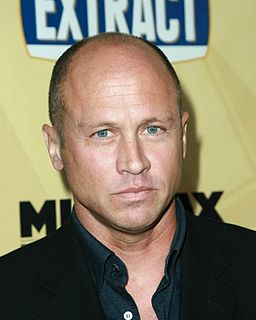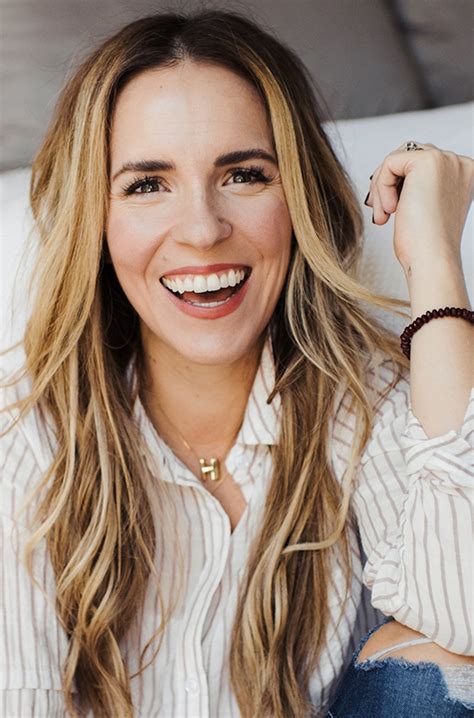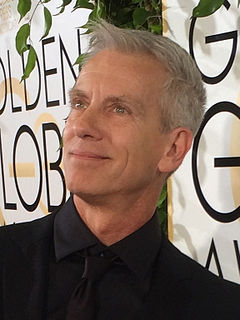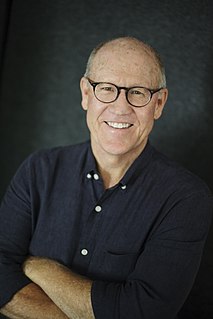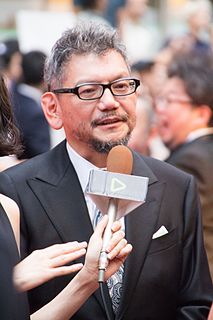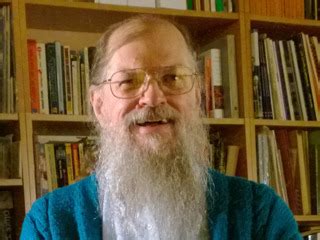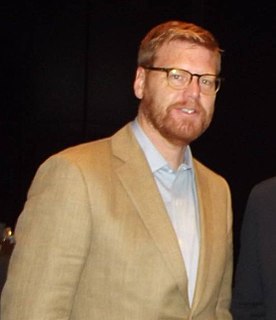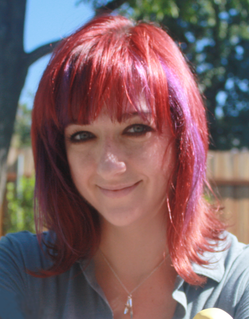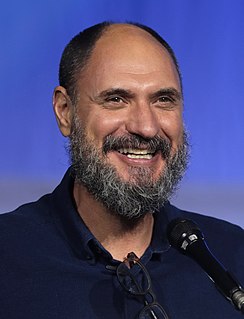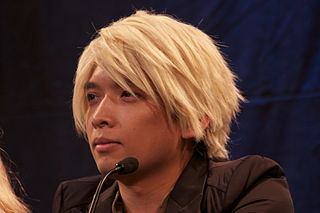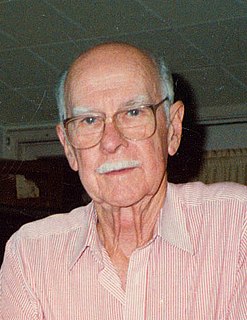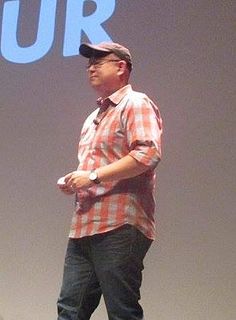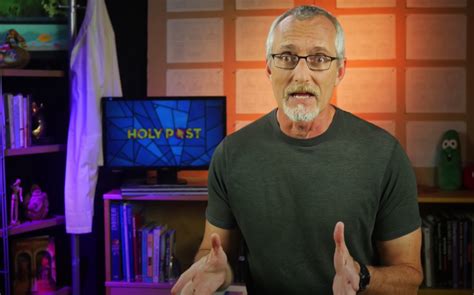A Quote by Don Hertzfeldt
I'll have a sentence in my head that's kind of beautiful and interesting, but I'm not sure why or where it's coming from. So it's kind of funny, because when people point out patterns or themes, it's the exact opposite of my film school experience.
Related Quotes
He knew why he wanted to kiss her. Because she was beautiful. And before that, because she was kind. And before that, because she was smart and funny. Because she was exactly the right kind of smart and funny. Because he could imagine taking a long trip with her without ever getting bored. Because whenever he saw something new and interesting, or new and ridiculous, he always wondered what she'd have to say about it--how many stars she'd give it and why.
We learnt a lot because we got in with real choreographers who tell you what they need from a song, because a song has to advance the story. Then real directors like Mike Nichols tell you where you can have 'B themes' and 'C themes', and we go oh yes, B themes and C themes! So we were taught in the finest school amongst the finest people. And also by the school of experience.
Kind of the exhausting thing about doing pure comedy, or something that's broader, is you're kind of a slave to the laugh. If it's not funny, then there's not much point in doing it. The kind of ueber-objective is to make people laugh. You always have to have that in the back of your mind, 'Eh, I've got to figure out a way to make this funny.'
Kind of the exhausting thing about doing pure comedy, or something that's broader, is you're kind of a slave to the laugh. If it's not funny, then there's not much point in doing it. The kind of über-objective is to make people laugh. You always have to have that in the back of your mind, "Eh, I've got to figure out a way to make this funny."
What people really want is not to make something funny, but to make something amusing - which, in many ways, is the opposite of funny. To amuse someone is to eliminate discomfort and awkwardness, kind of like a massage for the brain, while to be funny is to point out awkwardness and discomfort. Everyone thinks they want funny, but they really want amusement.
It kind of hit me at some point during the process that most people in the film business - not just the executives, the people who make them, too - tend to come from pretty upper-class backgrounds. If they go work a job, it's to have that experience, that sort of thing. After they graduate college, they have time to go visit Europe and take some time off and get their heads together. That kind of thing, I sure didn't have.
Its funny because when I did feel like I came out and I just felt like I was being truthful to myself, (it was at) that point I became very successful. So you know, it took a true kind of facing that truth of myself and being honest, that was when the real kind of fame or whatever that kind of stuff happened for me.
There’s a good kind of crazy, Kaylee,” he insisted softly, reaching out to wrap his warm hand around mine. “It’s the kind that makes you think about things that make your head hurt, because not thinking about them is the coward’s way out. The kind that makes you touch people who bruise your soul, just because they need to be touched. This is the kind of crazy that lets you stare out into the darkness and rage at eternity, while it stares back at you, ready to swallow you whole.
Now in Wikipedia it's really interesting. If you put something incorrect up on Wikipedia within minutes there are people crawling all over that sentence saying, "This is wrong" or "I want to change this" or "You've got to include an amplification," et cetera. So there's this massive checks and balances that actually makes that accuracy work. This is the kind of model that we - and I'm not sure why no one's discussing this - that we now have to begin to apply to fake news.
I always find it kind of more interesting when people ask questions like, "What were you like as a kid?" Or just kind of personal history stuff, like, "What was the lowest point of your life?" Because that would be like, "Huh, well, I'd have to think about that one." And then give an honest answer. I think a lot of people don't want to give honest answers, or they just are in business showbiz mode when they're talking about stuff, so that's probably why a lot of that kind of thing doesn't get asked.






